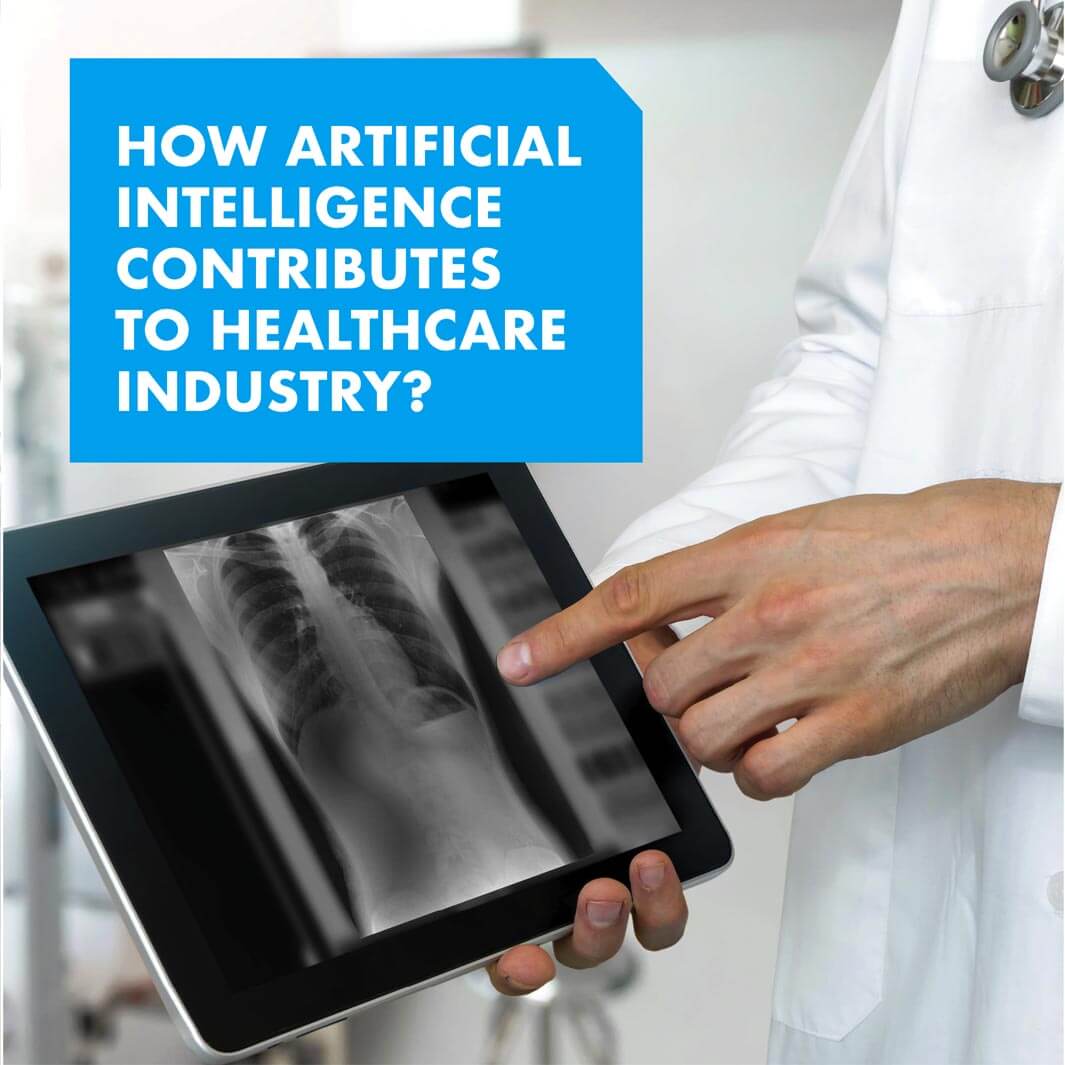
How Artificial Intelligence Contributes to Healthcare Industry?
Artificial intelligence has helped many industries to operate their daily activities, including healthcare. Technological developments have helped experts to provide services more effectively and efficiently.
Four AI implementations in healthcare:
- Medical Diagnosis
The diagnosis of a disease has an important role in determining the medical action to be performed on the patient. Misdiagnosis is fatal and can threaten the patient’s life.
Artificial intelligence reduces misdiagnosis caused by human errors. The system can also make diagnoses that are faster than medical personnel. One thing that has been done a lot at this time, for example, diagnosing if someone has pneumonia through X-rays of the lungs.
- Developing drugs
Artificial intelligence can help pharmaceutical companies conduct drug research and development more efficiently and accurately. The precise accuracy makes the research process progress faster including in clinical trials. This of course will have an impact on research and development costs.
One example is Deep Genomics. This AI platform helps researchers find candidates for developmental drugs related to neuromuscular and neurodegenerative disorders. Finding the right candidates during a drug’s development has statistically raised the chances of successfully passing clinical trials while also decreasing time and cost to market.
- Assist with surgery
The use of robots in the operation process has skyrocketed. Hospitals use robots to help with everything from minimally invasive procedures to heart surgery. Robots help doctors perform complex procedures with precision, flexibility, and control beyond human capabilities.
Robots equipped with cameras, mechanical arms, and surgical instruments add to the doctor’s experience, skills, and knowledge to create new types of surgery. Surgeons control a mechanical arm while sitting in front of a computer console while the robot provides doctors with a three-dimensional, enlarged view of the surgery site that surgeons simply cannot obtain by relying on their eyes. The surgeon then leads the other team members who cooperate with the robot during the operation.
- Accelerate health services
A hospital can receive hundreds of patients every day. Artificial intelligence can manage millions of data more quickly and effectively. This can improve and speed up hospital services so that the treatment process for patients can run better, including insurance services.
Benefits of AI
There are many advantages to using artificial intelligence in the industry. AI will automate many repetitive and sometimes dangerous tasks.
“The technology will allow workers to focus on higher-value and higher-touch tasks that often require interpersonal interactions,” said Erwin Hendradi, Solution Architect of PT Arvitech Mega Solusi. Erwin was a speaker at the Digital Clinic organized by the Master of Information Technology organized by the Swiss-German University.
The three advantages of using AI include:
- Discover value faster
Through the knowledge-based discovery of enterprise process and technology landscapes. Insights-driven approach to developing an IT strategy that is aligned to business priorities.
- Accelerate innovation
Pre-built industry-specific solutions, platforms, and frameworks to deliver new capabilities. Fast-track time to value through rapid business pilots.
- Minimize risks
Simplified and agile architecture processes and governance to improve IT response. Evolutionary and non-disruptive renewal of enterprise landscapes.
Tentang SGU
SWISS GERMAN UNIVERSITY (SGU) is an international university in Indonesia, was established in 2000 as a joint effort between Indonesia, Germany, Switzerland, and Austria. We are the pioneer in offering international curricula in Indonesia.
Qualified students can graduate with a Double Degree from Indonesia and Germany, which SGU provides in cooperation with partner universities; surely a valuable tool for your future careers. Ever since its establishment, SGU has been dedicated to delivering quality education in line with international standards and aims to develop skilled professionals who meet the demands of the industry. To achieve its objectives, SGU offers quality-oriented learning through 12 Bachelor’s Degree Programs and 4 Master’s Degree Programs ranging from Engineering, Information Technology, and Business to Life Sciences and Social Sciences. Furthermore, with small class sizes, and with English as the medium of instruction, you can look forward to pursuing your tertiary education and degree with full confidence.
Back
